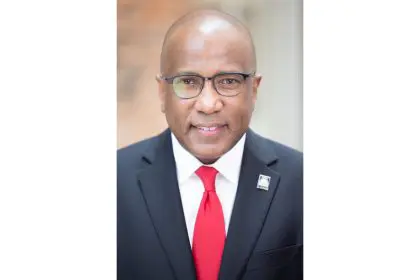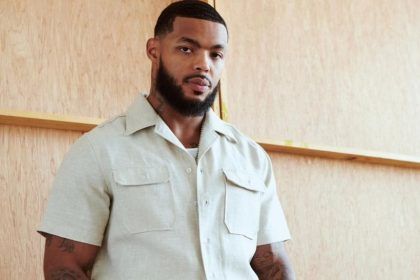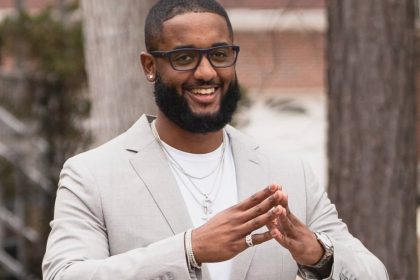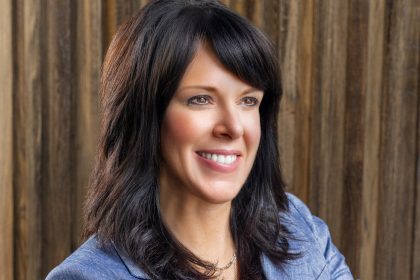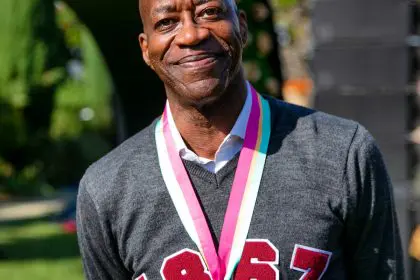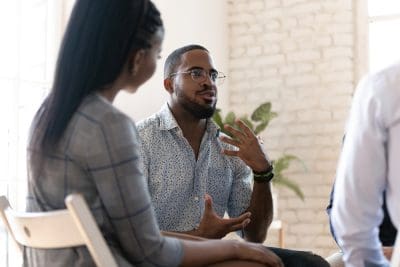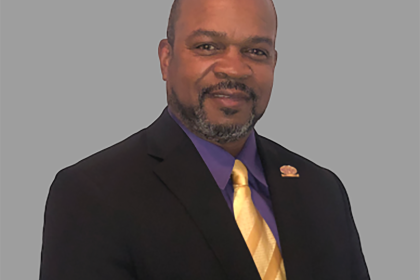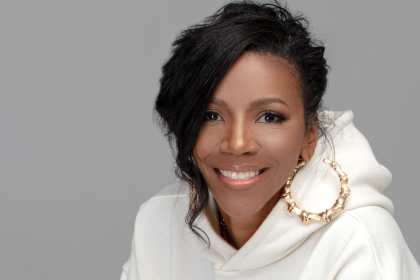
Daniel Ford stands as a beacon of leadership in the HBCU community. As Chair of the National HBCU Alumni Alliance and CEO of the Atlanta HBCU Alumni Alliance, he has dedicated his career to strengthening alumni networks and creating lasting community impact. A proud North Carolina A&T State University graduate with a distinguished career spanning project management and supply chain leadership, Ford has become an influential voice in alumni engagement and advocacy. In this insightful conversation Ford shares his journey, vision, and practical strategies for elevating HBCU alumni participation nationwide.
When you decided that you wanted to be a CEO and make a difference in our community, what was the motivation?
It was interesting because it was not something I decided to do, it was something I sort of fell into. One of the things that I realized over a period of time in organizations, particularly in our community, to serve our community, the leadership that was needed from, ‘Hey, how do you put together a strategy?’ and ‘How do you take that strategy and execute it into tactical objectives?’ and then ‘How do you motivate people to actually go out and do it?’, that skill set was sort of missing in certain places. I made a commitment that the next time I have an opportunity to really make a difference in that space, I would raise my hand and do it. I was one of those people always saying, ‘Hey, I’ll just be in the background. Just put me in the background.’ One day, I was called, and someone asked me, ‘So, hey, have you ever thought about being alumni president for …?’ I was like, ‘No.’ But then I remembered that commitment I made, and I said, ‘But I’ll try. I’ll do it. Yeah, let me do it.’ It just took off from there.
You’re part of a legacy of institution builders. Why is service so important to our community?
We have one of the things a lot of people don’t realize, the story. We’re inspired every day when we’re on campus by all those who came before us. One of the things that our students get to see every day is what I affectionately call the A&T Four. Some people call them the Greensboro Four, but these were the four freshmen. Imagine this, freshmen, 1960, who decided they were going to sit in at the Woolworth counter and started a movement. That movement spread to Nashville, Tennessee, and spread to the Atlanta University Center, and eventually it was what kicked off SNCC. SNCC was where John Lewis and all that leadership came from, and really, SNCC is the reason we have our Voting Rights Act. All this started in Greensboro, North Carolina, in 1960, but for freshmen! So we’re reminded of that service every day. It’s not just great you get an education, it’s great you get a great job and you’re making great money, but what are you doing to uplift the community along the way? So it’s part of the DNA, anyone who knows anyone who comes from A&T, when we see one another, we start with ‘Aggie Pride’ to one another. ‘Aggie Pride, Aggie Pride!’ It’s because it’s just embedded in us from day one. That’s part of our Aggie Pride, it’s a service we give back to our community.
What would be three steps that would amplify both the alumni experience and the role so that we can see a brighter future for our HBCUs?
One thing I would tell them right away is to take a moment out of their busy schedule, know everyone’s busy, extremely busy raising kids and careers and all of that, and all those wonderful things, but just take a moment out of that busy schedule and attend a meeting or connect with someone who’s involved in what’s going on from an alumni standpoint and understand what’s going on with the university, that’s one. The other one is to remember when they were a high school student with aspirations of going to their respective university, and how excited they were about going to the university, and knowing that there are kids just like them that have that same aspiration, just tap into that. With that, give $5, $10, $15 to a scholarship fund, if you can’t make it to the meeting, just give $15. You’ve got to pave the way for the next you that’s coming behind you. Then, the last thing is, and a lot of them do this, when you go to homecoming, because I know they’re going to homecoming, when you go to homecoming, carve out a little time to go back to the school you graduated from and talk to some of those faculty and see what’s going on with them, see what you could do to help. Can you come back and talk to the students and inspire them? So there are different ways of engagement, whether it’s through your alumni association, touching base with somebody in the alumni association, giving back to a student, and helping with scholarships with a student, or just touching base with your faculty, but my main theme here is engagement. Find your lane for engagement, and it’ll grow from there. Once you come back, you’ll realize, ‘Wow, I really miss this,’ and it’ll just go from there.
What kind of opportunities are you forging that will allow our community of alumni to come together in a healthy way?
First of all, let’s just say this about Atlanta, I love Atlanta. I wasn’t born and raised here, I’m not a Grady baby, I’m from Durham, North Carolina, but my father moved here in ’79, and I fell in love with the city then. Here’s the thing, in this city, we have the largest concentration of HBCU graduates than any other city in the country. So with that, we have a built-in ecosystem of all. We have to have a catalyst to come together. When we realized that, we said, ‘Man, one of the things that we really need to promote, particularly with our alumni, is health.’ Health is wealth, you’ve got to take care of yourself. You can have all the money in the world, but it doesn’t mean anything if you’re not mobile and you’re going to the doctor two, three times a month. Here’s the thing, proactively being healthy is the key. So what do we do to get people proactively healthy? We’ve got to make it fun. We’ve got to figure out some way to do it in a fun way. So 18 years ago, we started doing a run/walk. When we first started, we only had 250 people come out because it’s Saturday morning, starts at 8 o’clock. Imagine, almost 20 years ago, I told you, ‘Hey, meet me at Grant Park at 7:30, and we’re going to run 3.2 miles.’
We started that, and we framed it as a fundraiser because it is, but in the background, it was also a way of us promoting organized running, getting people comfortable with organized running, but doing it in a safe space within a community, where people you know, you trust, you can go out and say, ‘Oh, this is what’s up for organized running.’ You go get your bib, you do this, you get in position, you do this. Then, next thing, people are out there running the Peachtree Road Race. So it grew, it grew, it grew, eighteen years later, before COVID, we were trending toward 4,000 people coming together from all different HBCUs supporting HBCUs. We had students come out, and then COVID hit. We went into a situation where we started doing virtual runs, and we came back out, went physical again, and we’re growing. We’re already over 2,000 people registered for our run/walk on June 28th at Piedmont Park. Love to see you out there. We’ve got a walk component, you ain’t got to run, you can walk, but our whole thing is, get the community out to exercise, get fresh air, and then get into the fellowship, because afterwards we have this huge, what I call, summer homecoming party, where we have alumni row. In our wind-down, it turns into line dancing. We give out scholarships, people bring out food, we’ve got the tents and the music out, and it just turns into a good connection time and fellowship. This is a way that we’re able to increase our alumni membership because you’ve got people coming in who are not active, but they’re like, ‘Hey, this is fun.’ Then, once they get in it, they’re like, ‘Oh, man, I need to join my alumni. How do I do it?’ ‘Well, I’m glad you asked. Here’s the information right here.’ So it’s got several different prongs to it, but we like to say, ‘Hey, man, come out, run for you, run for them, run for us.’ It’s one of the biggest events that we do every year. It grew to such a point that now we have it in Philadelphia, in D.C., we all do it at the same time, on the same day. So it’s turned into a national thing for us.
If you were speaking at a graduation, what would you challenge the next generation to do?
The first thing I would tell them is, do not underestimate their value as alumni. They have a tremendous amount of persuasion, a tremendous amount of influence, as it relates to them collectively. We have a habit of, we get our degree, and we go off and we start life, and we get disconnected in a way. But to be connected to your class throughout that journey, that’s your strength, that’s your community, that’s your tribe. With that, you’ve got a battery behind you of alumni who came before you, who can help you navigate in spaces that you’ve never experienced before. If you look at the time we’re in right now, there are young people who are encountering things they’ve never seen before, but those of us who’ve been around for a while, we’re like, ‘Yeah, we’ve seen this move before.’ To be able to have that knowledge and that connection, that’s what my message would be to them, to stay connected not only with their class, but with those who came before them, and leverage that strength they have as alumni.
For those who need some quick notes for what they can do, how they can get involved in their city?
You can just Google ‘National HBCU Alumni Alliance,’ and that’ll take you to our national page. On that national page, you can see the different cities we’re connected with, and you can reach out to that city. If you don’t see your city there, find the closest city and reach out to us there. We can make sure we can get you connected, or just reach out to us directly at National HBCU Alumni Alliance.

